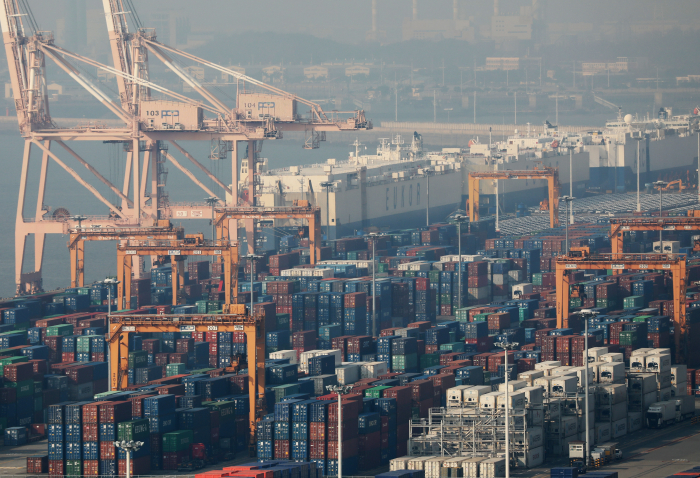S.Korea's Oct c/a surplus down 40% on oil price rises
The balance of services turns to the black in October, led by record-high surplus in the transport sector
By Dec 07, 2021 (Gmt+09:00)
LG Chem to sell water filter business to Glenwood PE for $692 million


KT&G eyes overseas M&A after rejecting activist fund's offer


Mirae Asset to be named Korea Post’s core real estate fund operator


StockX in merger talks with Naver’s online reseller Kream


Meritz backs half of ex-manager’s $210 mn hedge fund



South Korea's current account surplus in October narrowed by 40% from a year earlier, with the rapid rise in crude oil and raw material prices offsetting record-breaking exports, according to the Bank of Korea on Tuesday.
The country extended the current account surplus to the 18th straight month in October, when the surplus came to $6.95 billion, compared with the previous year's $11.6 billion.
Imports spiked by 38% on-year in that month, at a faster pace than the exports growth of 20.1%. The balance of goods shrank by $4.5 billion to $5.6 billion.
In particular, the value of petrochemical products and natural gas imports skyrocketed by 267% and 137% on-year in October, respectively. Crude oil imports rose 83% on-year in that month. South Korea's is the world's fifth-largest oil importer, relying on imports to meet almost all of its crude oil demand.
By comparison, the balance of services turned to the black, posting a surplus of $630 million in October, versus the previous year's shortfalls of $830 million.
The transport sector led the surplus in the services balance, posting a record-high surplus of $2.2 billion in October, about a fivefold increase from the previous year's $480 million.
Soaring freight rates on the back of logistics bottlenecks drove the transport sector's balance higher. The Shanghai Containerized Freight Index that tracks ocean freight rates and the air freight-tracking TAC Index leapt 212.6% and 64.7% on-year in October, respectively.
In November, South Korea’s exports hit an all-time high, exceeding $60 billion for the first time in terms of monthly shipments, while the country's consumer inflation rose to a near-decade peak of 3.7% on-year.
Write to Ik-hwan Kim at lovepen@hankyung.com
Yeonhee Kim edited this article.
-

-
 EconomyKorean inflation nears 10-year peak in November, fanning rate hike views
EconomyKorean inflation nears 10-year peak in November, fanning rate hike viewsDec 02, 2021 (Gmt+09:00)
1 Min read -
 EconomyKorea’s November exports top $60 bn for first time to fresh high
EconomyKorea’s November exports top $60 bn for first time to fresh highDec 01, 2021 (Gmt+09:00)
1 Min read


